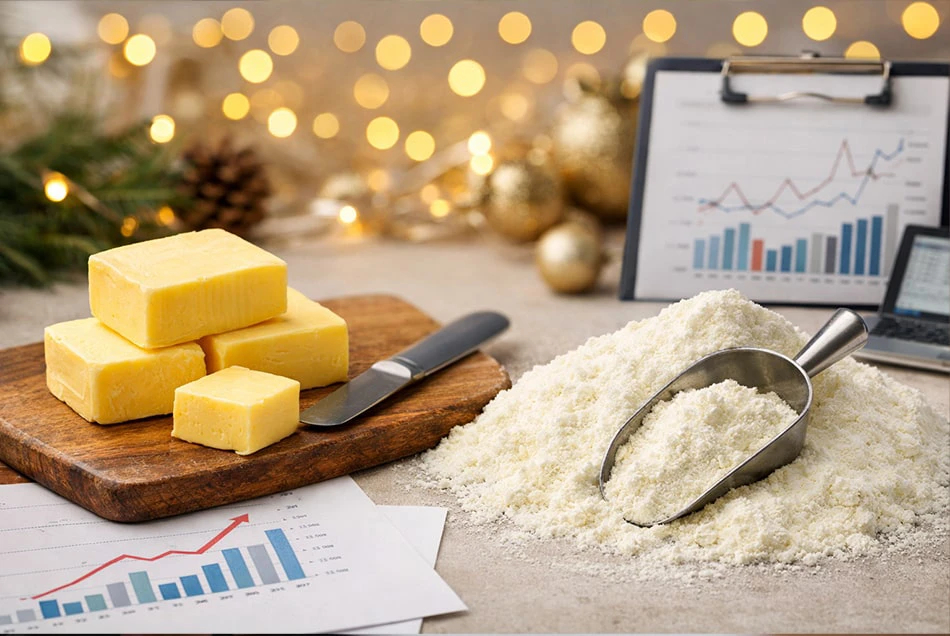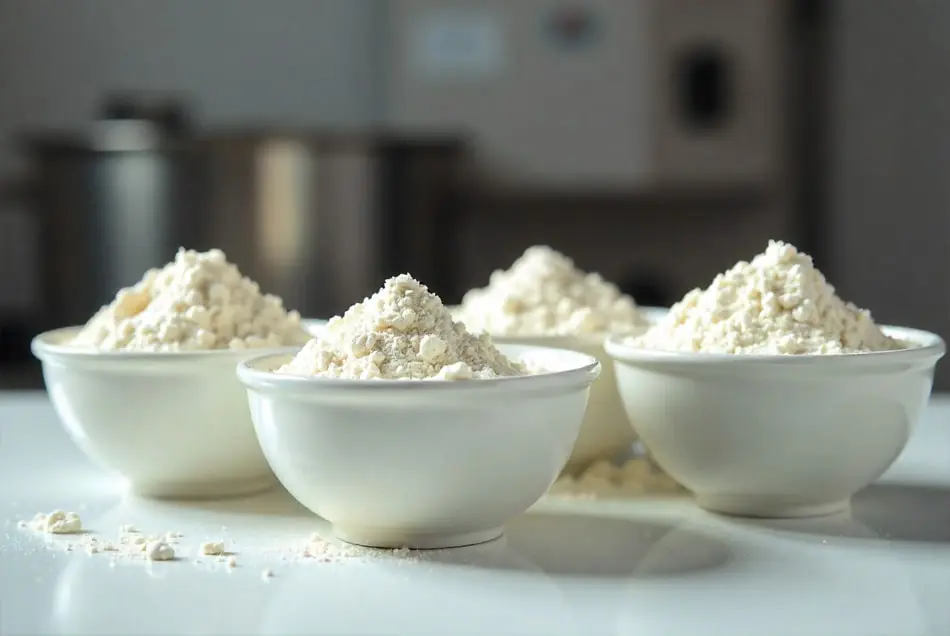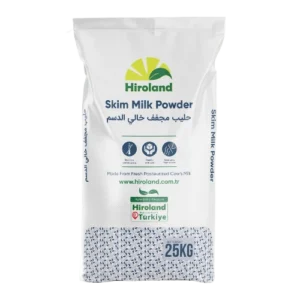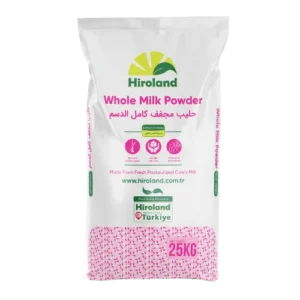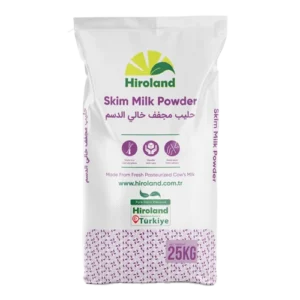Here, we aim to highlight the disparity between milk powder and formula, emphasizing their nutritional compositions, safety, and intended use to shed light on their unique roles in the food industry.
What is formula milk made of?
Formula milk, also known as milk powder for baby, is a manufactured food designed to provide essential nutrients to infants who are not breastfed. It aims to mimic the nutritional composition of human breast milk, offering a balanced combination of proteins, carbohydrates, fats, vitamins, and minerals crucial for infant development. Additionally, formula milk may contain specific nutrients such as DHA and ARA, contributing to brain and vision development in infants. With its regulated production processes and stringent quality standards, baby milk powder is a highly controlled product, ensuring its safety and nutritional adequacy for infant consumption.
What are different types of formula?
Having a variety of formula options allows caregivers and healthcare professionals to select the most appropriate formula for each infant based on their individual nutritional requirements and any specific medical considerations.
Cow’s Milk-Based Formula
Cow’s milk-based baby milk powder is the most commonly used type of formula and is derived from cow’s milk that has been modified to resemble human breast milk. It contains a balanced combination of proteins, fats, carbohydrates, vitamins, and minerals. This milk powder is suitable for most infants who do not have specific dietary restrictions or allergies.
Soy-Based Formula
Soy-based milk powder for infants is made from soy protein and is designed for infants who cannot tolerate cow’s milk-based formula due to lactose intolerance or cow’s milk powder protein allergy. It provides a plant-based alternative for infants with specific dietary needs.
Hydrolyzed Protein Formula
Hydrolyzed protein formula is formulated with proteins that have been broken down into smaller components, making it easier to digest. This type of Powdered milk is often recommended for infants with cow’s milk protein allergy or digestive issues.
Specialized Formulas
Specialized baby milk powders are designed for specific dietary or medical needs. This may include amino acid-based formulas for infants with severe allergies, lactose-free formulas for infants with lactose intolerance, or milk powders enriched with specific nutrients for premature or low birth weight infants.
Using industrial milk powder as a substitute for infant formula or breast milk can result in nutritional deficiencies and health risks for infants. It may lead to inadequate intake of essential nutrients needed for their growth and development.

Milk powder applications
Industrial milk powder is a versatile dairy product utilized in various food manufacturing processes. It undergoes processes such as dehydration and pasteurization to yield a powder form with extended shelf life and increased portability. With variations including skim milk powder(SMP), whole milk powder(WMP), and specialized formulations(UHT Grade), industrial milk powder serves as a key ingredient in the production of dairy products such as cheese, yogurt, ice cream, and milk-based beverages. Furthermore, it is extensively used in non-dairy products, including bakery items, confectionery, and processed foods, enhancing their texture, flavor, and nutritional content. The diverse applications of industrial Powdered milk demonstrate its significance as a foundational component in the food processing industry, contributing to the creation of a wide range of food products.
Hiroland Industrial Milk Powders
At Hiroland, as experts in producing and supplying dairy products, we are committed to maintaining the highest standards of food safety and quality in the industry. Our dairy ingredients are carefully formulated to ensure stability and meet strict safety criteria in line with Good Manufacturing Practices (GMP) and Good Hygiene Practices (GHP) guidelines. We take pride in offering a diverse range of products tailored to meet various customer preferences and business needs. Our portfolio includes a wide variety of dairy ingredients, such as Industrial Milk Powder, UHT Milk powders, and Evaporated and Condensed Milk, all crafted with precision and care. These products are designed to meet the unique needs of different industries and discerning consumers. Our premium milk powders and dairy preparations are specifically designed to serve a range of industries, including baked goods, ice creams, beverages, chocolates, confectionery, and more. They are versatile, reliable, and ideal for meeting the specific requirements of discerning clients like you.
Industrial milk powder grades
Skim Milk Powder
Skim milk powder (SMP) is produced by removing the fat content from milk, resulting in a low-fat, high-protein powder. It is widely used in the food industry as an ingredient in various products, including beverages, baked goods, and processed foods. Skim milk powder contributes to the nutritional profile and texture of the final products while extending their shelf life.
Whole Milk Powder
Whole milk powder (WMP) retains the natural fat content present in milk, providing a rich and creamy flavor profile. It is utilized in the production of dairy products such as ice cream, yogurt, and cheese, as well as in the creation of reconstituted liquid milk. The versatility of whole milk powder makes it a key component in the formulation of a wide array of dairy-based foods.
Specialized Milk Powder Formulations
Apart from standard skim milk powder and whole milk powder, specialized formulations tailored to specific industrial applications are also prevalent in the market. These include instant fortified whole milk powders (WMP) with added vitamins and minerals for nutritional enrichment, high heat heat-stable skim milk powders (SMP HHHS) for use in high-temperature food processing, and instantized milk powders (instant SMP and instant WMP) designed for quick reconstitution in beverage applications. These specialized milk powder formulations cater to the diverse needs of food manufacturers, offering enhanced functionality and tailored properties to meet specific production requirements.
By incorporating these diverse types of industrial milk powders into various food products, the food industry is able to leverage their nutritional benefits, functional properties, and extended shelf life, contributing to the development of a wide range of high-quality and nutritious consumables.

Dairy milk powder benefits
Industrial powdered milk offers several benefits due to its versatility and long shelf life, making it a valuable ingredient in various food manufacturing processes. Some of the benefits of industrial milk powder include:
Shelf Stability: Industrial milk powder has a significantly longer shelf life compared to liquid milk, allowing for extended storage without refrigeration. This contributes to reduced food waste and transportation costs.
Nutritional Contribution: Industrial milk powder serves as a source of essential nutrients such as proteins, calcium, and vitamins in food products, enhancing their nutritional content and supporting dietary requirements.
Versatility: It can be used as a key ingredient in the production of a wide range of food products, including bakery items, confectionery, dairy-based products, and non-dairy products, offering flexibility in formulation and application.
Cost-Effectiveness: Its lower transportation and storage costs, as well as its longer shelf life, make it a cost-effective option for food manufacturers, enabling efficient production and distribution of food products.
Functional Properties: Industrial milk powder provides functional properties such as texture enhancement, flavor enhancement, and improved solubility, contributing to the quality and consistency of food products.
Convenience: Its powdered form offers convenience in handling, storage, and reconstitution for use in various food applications, facilitating manufacturing processes.
Market Accessibility: Industrial milk powder can be readily transported and used in regions where access to fresh liquid milk is limited, helping to meet demand and supply requirements in diverse geographical areas.
The disparity between milk powder and formula
Industrial Milk Powder
Industrial milk powder is a dehydrated form of cow’s milk commonly used in food manufacturing due to its versatility and cost-effectiveness. While it serves as a key ingredient in a wide range of food products, including baked goods, confectionery, and dairy formulations, it is not specifically formulated to fulfill the unique nutritional needs of infants.
Infant Formula
On the other hand, infant formula is meticulously formulated to emulate the nutritional profile of breast milk, providing infants with the essential macronutrients and micronutrients crucial for their growth and well-being. These formulations are designed to cater to the specific nutritional demands of infants, providing an alternative to breast milk when necessary.
Conclusion
In conclusion, the distinct characteristics and applications of formula milk and industrial milk powder reflect their unique roles in infant nutrition and the food industry. Understanding the tailored nutritional compositions and specific applications of these products is essential for informed decision-making in both infant care and food manufacturing practices.
For inquiries or to contact the Hiroland, please refer to the Contact section.
Read More: Exploring the Shelf Life of Dairy Products: Extend Freshness with 7 Proven Tips
Read More: Production and characterization of infant milk formula powders




